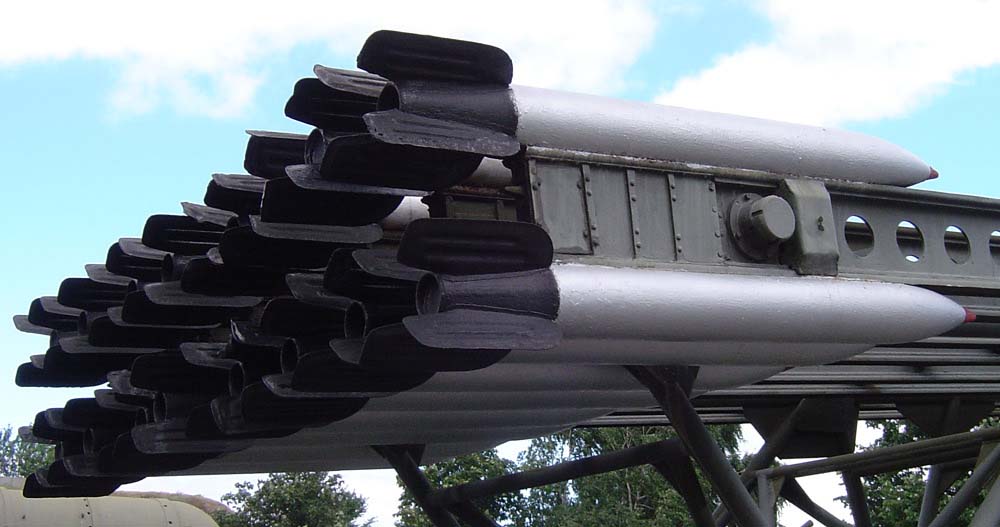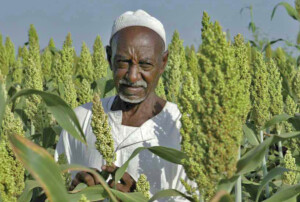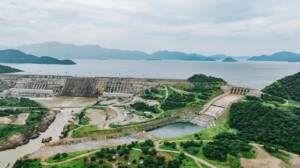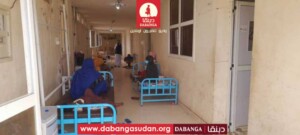Sudan war: New shelling reignites Khartoum state after two-month lull

A Katyusha multiple rocket launcher (File photo: ChrisO / English-language Wikipedia / CC BY-SA 3.0)
Various areas of Khartoum state have witnessed clashes since the end of last week, returning the situation on the ground in the country’s capital to tension after a period of relative calm that lasted for nearly two months.
Central Khartoum witnessed violent clashes between Sudanese Armed Forces (SAF) and the paramilitary Rapid Support Forces (RSF) since the early hours today, amid intense air traffic. In southern Khartoum, the sounds of RSF’ anti-aircraft guns rang out this Thursday morning after the Sudanese army’s warplanes launched raids on a number of Rapid Support Forces sites in the Sports City, South Belt, and Soba areas.
The army began shelling RSF positions surrounding El Medina El Riyadiya (Sports City) in southeast Khartoum on Thursday A shell falling on the wholesale El Soug El Markazi (Central Market) in southern Khartoum caused civilian casualties.
The RSF responded by shelling army positions in the armoured corps in El Shajara. There were no reports of casualties. However, this mutual shelling escalated into operations in various areas of Khartoum state.
Omdurman
Direct clashes on the ground were concentrated in western Omdurman. SAF units succeeded in expelling RSF elements from the El Muhandiseen/Engineers’ neighbourhood on August 1 and advanced towards the western parts of the El Fitihab (Abu Sid) neighbourhood, after having regained control of the neighbouring Ed Doha neighbourhood in the first week of July 2024.
This means that the army succeeded in securing the northern and western fronts of the Engineers’ Corps, which represents the main stronghold of the armed forces in southern Omdurman and along the area that starts from Wad El Bashir Bridge to the southern wall of the Hamed El Nil Cemetery.
The El Bustan and El Nakhil neighbourhoods witnessed fierce battles between army forces advancing towards the southwest and RSF advanced bases in these neighbourhoods.
The Dabanga verification team contacted people in these areas, who confirmed that the RSF still maintain their positions in Libya Market and Dar El Salam, in addition to the El Murabba’at neighbourhood and the Real Estate Bank housing. They denied that the army had taken control of the Karor Market, which was hit by artillery shells as a result of the fierce battles.
On August 7, RSF artillery shelling targeted the northern countryside of Omdurman. Radio Dabanga sources indicated that the shells were fired from the Sharg El Nil (East Nile in Khartoum North) area, which is under the control of the RSF. The Karari Resistance Committees confirmed that rocket shells fell in the El Surorab area, killing two people with direct hits.
The RSF resumed their artillery shelling of Omdurman this morning, August 8, targeting a number of areas under the control of the SAF. Eyewitnesses reported that the shells rained down on the El Manara area, located on the western bank of the Nile River, adjacent to the Halfaya Bridge, which connects Omdurman to Khartoum Bahri. The army controls the western entrance to the bridge, while the RSF control its entrance from the east.
Northern Sudan
For its part, websites loyal to the RSF broadcast a 31-second video clip filmed in the dark, showing a rocket launcher firing two shells, while the voice commenting on the video says that it is targeting the town of Shendi, in River Nile state.
The Dabanga Fact-Finding Team reviewed the video clip and the information circulating about the bombing targeting the Wad Hamed area in southern Shendi. The Wad Hamed area is located in the south of the Matamma locality, which is located west of Shendi and on the western bank of the Nile River. This logically means that the video clip is misleading and that the shells did not reach the south of Shendi town since they fell on Wad Hamed.
Wad Hamed is considered a northern extension of the northern rural areas of Omdurman, where the town of El Surorab is located.
Expected
Observers expect that various battle fronts in the capital and in several states will witness an escalation in the coming few days. The army relies mainly on artillery shelling and air strikes, while the RSF use drones and rocket launchers.
“The two parties will seek to pre-empt the upcoming negotiations in Geneva to achieve some victories on the ground, which, although they will not significantly change the balance of power and geographical distribution of the two warring parties, will at least allow, when sitting at the negotiating table, to talk about achieving victories, in a war in which the biggest loser is the Sudanese people,” one of them said.











 and then
and then